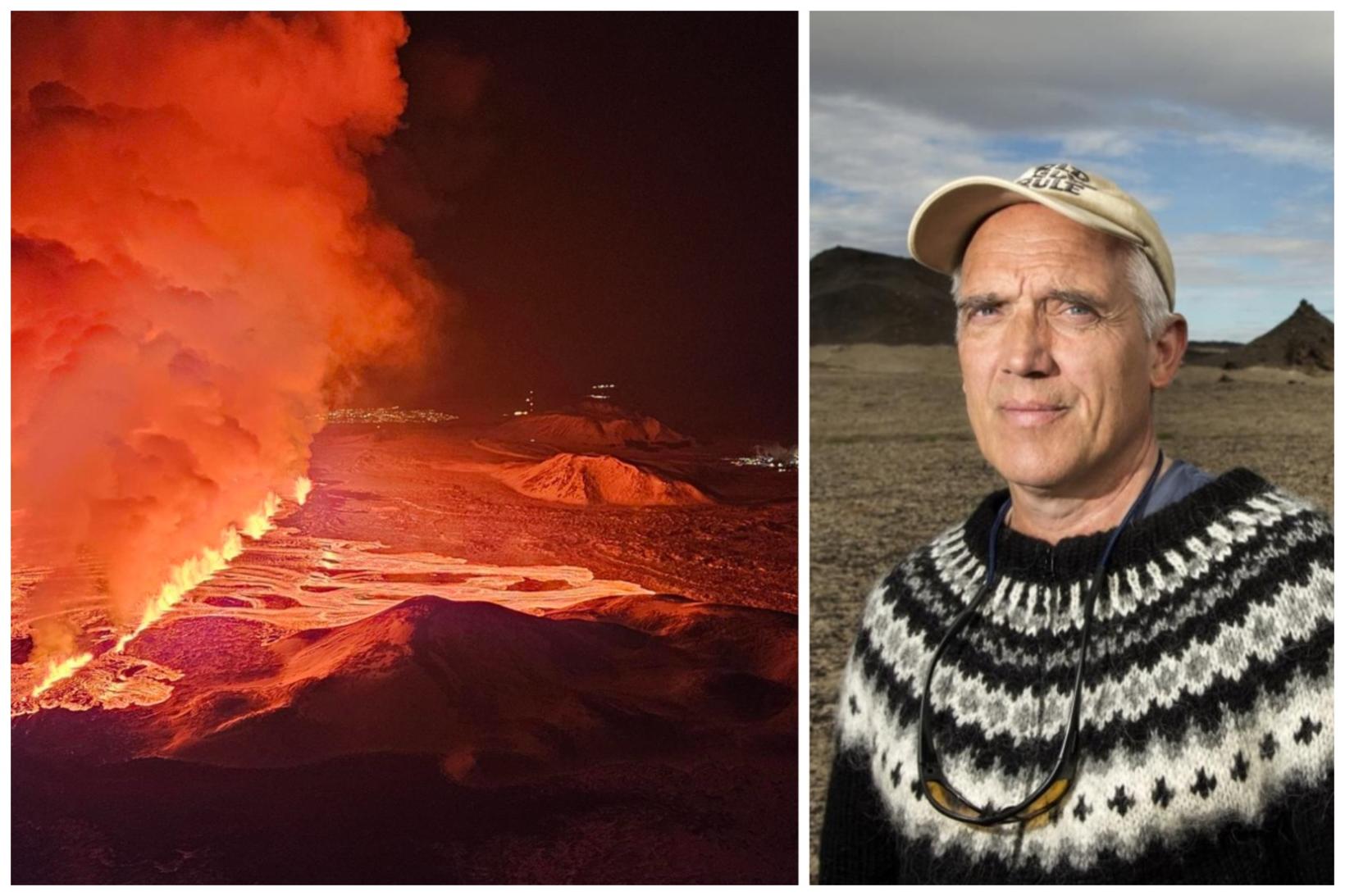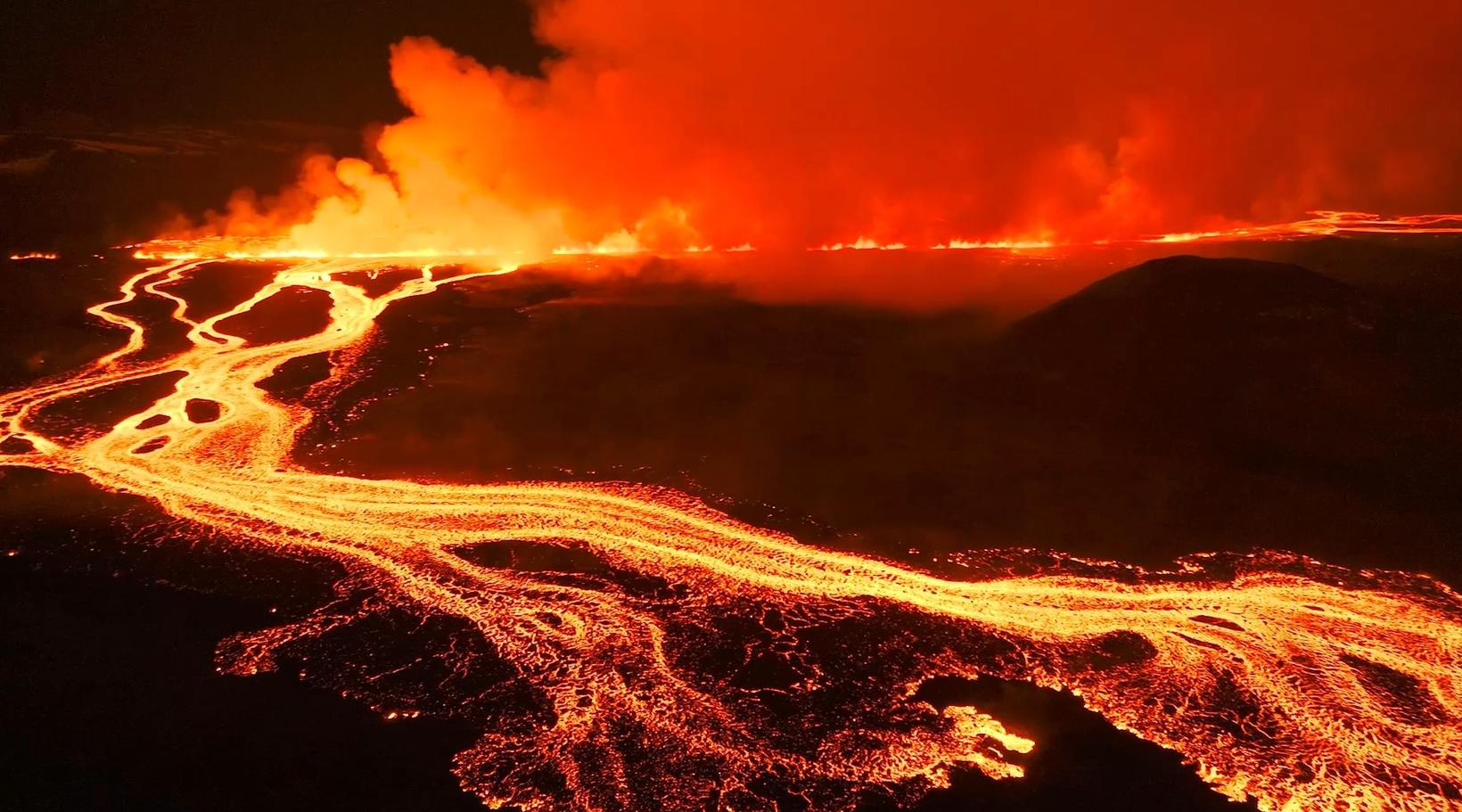Behaves like a Krafla eruption
“The eruption is now starting to reduce, at least in terms of how it was in the first place last night,” Ármann Höskuldsson, a volcanology professor at the University of Iceland, tells us about the lava flow at Sundhnúkagígar crater row, adding that it’s quite likely that the eruption will fade out today, as other scientists have observed.
“It started so strongly and then it’s rapidly emptied, now the pressure is falling, it builds up between the two and we get the inflation, then it is like you make a hole in a balloon and then the pressure collapses,” Höskuldsson continues, saying that the magma chamber is rapidly emptied now because of the amount of flow that was in the beginning.
Typical sliding of the earth’s plates
“The amount of lava has been four-five hundred cubic meters per second, which is among the highest we have been seeing,” he says.
Whether the lava reaches or crosses the Suðurstrandarvegur road, he says, depends on when the flow stops. “It could spill up to it, it flows well to the south, but thankfully less to the west.”
Höskuldsson refers to data from the Icelandic Met Office showing that the inflow into the chamber is slowly decreasing, “but there’s nothing that predicts anything other than that [the accumulation of magma] will continue just as soon as the eruption stops. As soon as the pressure drops, the tunnel closes and the process begins again,” he says.
“This is more powerful than the other eruptions in this area and in that respect, it’s much like how Krafla behaved, it started with a small eruption and then the eruptions got bigger and bigger. It’s just a typical sliding of the earth’s plates event,” he concludes.
Ármann Höskuldsson, volcanologist and a professor at the University of Iceland. Composite image/Björn Oddsson











